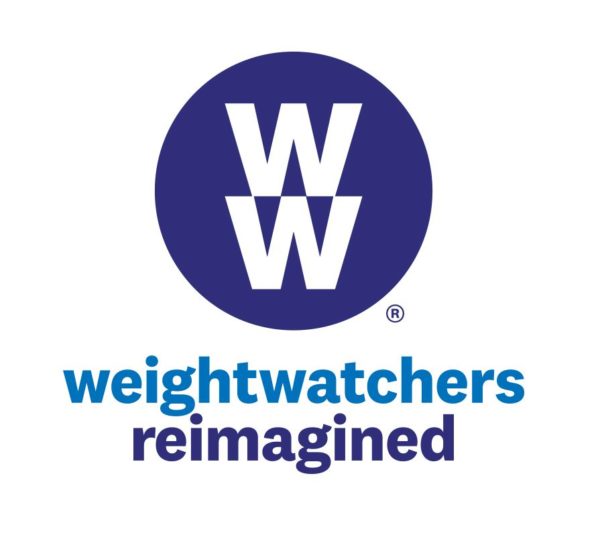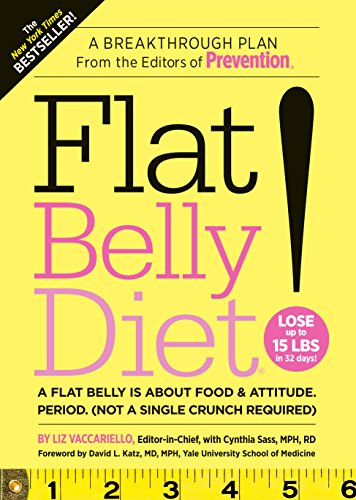Weight loss programs give you a systematic approach to sticking to a healthy diet and exercise routine.
Having a system you can follow that gives you guidelines for diet, exercise, or both is incredibly helpful when it comes to shedding excess body fat, and the best weight loss programs are proven to be more effective than trying to figure things out on your own.
With weight loss being such a hot topic, there’s an almost unlimited number of weight loss programs to choose from, but only some of them are worth your time.
Our team has researched the field and found the 10 best weight loss programs you can start up to hit your weight loss goals:
Our advisory panel and our research team rank the best health products and supplements based on performance, label accuracy, and the efficacy of the ingredients in the products.
- Best Overall: Nutrisystem
- For Older Adults: Mayo Clinic Diet
- Best For Women: South Beach Diet
- Jenny Craig
- Best With App: WW (Formerly Weight Watchers)
Research
Rankings
Last updated: October 21, 2022
Weight loss programs considered: 23
Hours of research: 52
Experts reviewed: 12
Scientific papers referenced: 23
| IMAGE | PROGRAM | |
|---|---|---|
Best Overall  | 1. Nutrisystem
| View Latest Price → |
for Older Adults  | 2. Mayo Clinic Diet
| View Latest Price → |
Best for Women  | 3. South Beach Diet
| View Latest Price → |
 | 4. Jenny Craig
| View Latest Price → |
Best with App  | 5. WW (Formerly Weight Watchers)
| View Latest Price → |
 | 6. HMR Program
| View Latest Price → |
 | 7. Atkins Diet
| View Latest Price → |
 | 8. Zone Diet
| View Latest Price → |
 | 9. Flat Belly Diet
| View on Amazon → |
 | 10. Whole30 Diet
| View Latest Price → |
1. Nutrisystem

Click here for the lowest price
Nutrisystem, one of the most well known, and longest-running, names in weight loss, and for good reason. They focus on small portions and frequent meals to help you lose weight and develop good habits to keep that weight off.
Nutrisystem is a 4-week diet plan where you will enjoy a variety of delicious, chef-created meals delivered right to your door. Towards the second half of the program, you will begin to introduce flex meals and learn healthy meals you can cook for yourself to develop healthy habits moving forward:
Plus, the actual food and taste is bonkers:

And tasty meals that look like this:

They take all the guesswork out of dieting and make it as easy as possible on you to lose weight.
Their meals are perfectly balanced with plenty of healthy, lean protein, high fiber to keep you full, low carb, and low sugar.
With a variety of diet plans for all sorts of lifestyles and dietary needs, Nutrisystem is designed to help you lose weight without starving yourself.
It’s not even close – Nutrisystem takes the “cake”.
BodyNutrition.org’s 2022 overall weight loss program winner by a long shot.
Click here for the lowest price
2. Mayo Clinic Diet

Click here for the lowest price
The Mayo Clinic diet comes backed with the support of one of the top medical centers in the world. The diet program is focused on eating simple, healthy, delicious meals in moderation. Backed by tons of research and designed by dieticians, it’s built to be customized to your body, lifestyle, and goals.
The diet is broken up into 2 phases. The first is an intensive start to the plan which helps you lose up to six to ten pounds. This phase is also focused on habits. You’ll learn what bad habits you have that are making it harder for you to lose weight, and you’ll create new habits that will support ongoing health and weight loss.
In the second phase, you’ll on lose about a pound or two per week until you’ve reached your target weight. You’ll begin to focus more on exercise, and a focus on maintaining the healthy habits you’ve created.
The Mayo Clinic Diet puts your health in your hands. You get access to the diet plan itself, and a huge library of recipes, fitness plans, and information that will help you craft a healthy lifestyle for yourself. It’s designed to be the last diet you’ll ever need.
3. South Beach Diet

Click here for the lowest price
The South Beach Diet is a fast, high protein, low carb, and low sugar diet that ensures your body gets enough “good” fats to keep your heart healthy while still burning body fat.
The South Beach Diet makes it as easy as possible to lose weight. They deliver delicious, ready-to-eat, meals right to your door. You’ll eat small, perfectly portioned meals, six times a day, so you will rarely feel hungry.
One of their focuses is on flexibility, with a large menu, and several ideas and recipes for DIY meals, you won’t feel like you’re always eating the same thing.
The majority of their programs are 4 week programs, with 3 phases. The first phase jumpstarts your diet and your metabolism to prime your body for weight loss.
The second phase focuses on developing healthy habits while continuing the weight loss started in phase 1. The third phase is all about transitioning from diet to life. You will learn how to put the South Beach Diet principles into practice in your everyday life, and continue your weight loss journey on your own.
The South Beach Diet is simply an excellent diet plan that has been shown to help many people reach their goals.
4. Jenny Craig

Click here for the lowest price
Among commercial weight loss plans reviewed by independent scientists, Jenny Craig is a top performer. Compared to a standard nutrition counselling program, people who do Jenny Craig lose five percent more weight.
Part of the reason for this advantage is probably the personal consultant you talk to weekly to make sure you’re staying on target to meet your goals: the accountability of Jenny Craig is a huge part of its success.
5. WW

Click here for the lowest price
You’d think an old standby like Weight Watchers would be behind the times, but the research shows it is actually pretty competitive.
With weight loss rates of almost three percent better than a typical nutrition and activity program, the points-based system the plan uses doesn’t make any foods off-limits.
This makes it easy to follow, but if you have health issues like metabolic syndrome, you might need a different plan that cuts back on sugars and refined carbs.
6. HMR Program

Click here for the lowest price
If you want to lose a lot of weight fast, the HMR program is the way to go.
It’s a pretty restrictive diet, which has benefits and drawbacks.
The upside is that you can lose over 4% more weight in a short period of time on this plan, but not everyone is able to stick with it in the long run–it performs worse when studies look at the long-term results.
7. Atkins Diet

Click here for the lowest price
The Atkins Diet was one of the original low-carb diets to gain popularity.
According to independent scientific research, studies vary on its efficacy: depending on which one you look at, the benefits range from a meager 0.1 to a respectable 2.9% improvement in weight lost compared to standard nutritional counselling.
One drawback, according to a meta-analysis of weight loss programs, is an increased rate of constipation among Atkins Diet adherents (not surprising given its low fiber content) (1).
8. Zone Diet

Click here for the lowest price
The Zone Diet takes a low-carb approach to weight loss and combines this approach with a frequent-eating strategy to keep the body feeling full and prevent food cravings.
One study published in the Journal of the American Medical Association found that it outperformed the Atkins Diet and Weight Watchers over the course of a year, but other research on its efficacy is lacking (2).
9. Flat Belly Diet

Click here for the lowest price
Despite its fad-diet name, the Flat Belly Diet takes a very sound nutritional approach. It’s based off a Mediterranean diet pattern, involving healthy fats, lots of fruits and vegetables, and almost no red meat.
What’s less clear is whether it’s effective at keeping people to stick to the program. There isn’t as much hard data on this program compared to the higher-ranked options.
10. Whole30 Diet

Click here for the lowest price
The Whole30 diet is paleo on steroids. It recommends eliminating sugar, grains, legumes, dairy, soy, and alcohol completely from your diet for a month.
This will almost certainly be effective, since it will force you to eat pretty much only meat, fruits, vegetables, nuts, and eggs.
The real question is whether you can maintain such an aggressive diet indefinitely. Adherence to this program is low, which is why it ends up at the bottom of the rankings.
Category winners
Best weight loss program overall: Nutrisystem
Nutrisystem is a great all-around choice because of how easy it makes it to stick to the program. You get great-tasting meals delivered, which takes the work out of shopping, meal planning, and calorie counting. If you want a fast and easy program, this should be your pick.
Best weight loss program for women: South Beach Diet
The South Beach Diet is low in carbohydrates and high in protein, plus offers meal delivery right to your door. It’s the perfect choice for women who have a busy schedule but want to make weight loss a priority.
Best weight loss program for men: Nutrisystem
Men often struggle with weight loss diets because preparing all your own food takes a lot of work (not to mention cooking skill). Nutrisystem makes it easy to sidestep this challenge: not only are your meals pre-made; the calories are already counted out. For men who want to drop the excuses and drop some weight, it’s a great program.
Best weight loss program with an app: WW (Weight Watchers)
WW operates on a points system, which can be complicated if you don’t have a solid app to track your daily intake. Fortunately, the WW app is super intuitive and easy to use, making it a great choice if you want to use an app to guide your weight loss program.
Best weight loss program for older adults: Mayo Clinic Diet
For adults age 50 and older, a focus on overall health is a big factor when choosing a weight loss program. The Mayo Clinic Diet, developed in consultation with experts on everything from heart health to brain health, is perfectly suited for older adults who want to make sure their overall health improves along with the number on the scale.
Best weight loss program with a coach: WW (Weight Watchers)
Research shows that support from peers or from a coach helps increase your chances of weight loss success. WW capitalizes on this research, offering both peer support groups and coaching sessions to keep you on track to hit your weight loss goals.
Who should join a weight loss program?
Pretty much anyone off the street (overweight or not) can name the ingredients of a successful weight loss program, but the actual statistics on how people do when they try to lose weight are pretty dismal.
Fortunately, a weight loss program can help, especially for people in the following categories:
People who want to sustain their weight loss long-term. Almost any diet program can create short-term results, but the real challenge is keeping weight off long-term. Only about one in five people are able to maintain their weight loss one year after starting a diet (3), but people on a weight loss program fare better.
People who want to tailor their weight loss for specific health goals. Generic weight loss advice (eat less, exercise more) isn’t very helpful to begin with, but that’s doubly true for people with health conditions like high blood pressure or metabolic syndrome.
A weight loss program can help you get better results that target blood pressure, blood sugar, or other important targets for health.
People who have a hard time sticking to a diet on their own. Losing weight on your own is tough. When you have social support and accountability, research shows weight loss success increases dramatically (4).
The regular feedback and social support you get from a weight loss program can make a huge difference in your commitment level to your weight loss program.
How we ranked
To cut through the huge range of weight loss programs of varying quality out there, we used the following standard to evaluate plans:
Comprehensive plans for weight loss. We only considered formal and fully fleshed-out programs with specific systems for losing weight. Generic dietary prescriptions, like “low carb” or “low fat,” weren’t good enough, since they weren’t specific enough to be useful.
Demonstrated success. We put a strong emphasis on programs that had empirical evidence backing their success, especially when this evidence was collected by independent researchers.
We capitalized on an exhaustive scientific review of over 45 different studies on weight loss programs (5).
Programs like Jenny Craig, WW, and South Beach shined in this regard, with plenty of clinical research on their efficacy.
As a result of these criteria, “diet of the month” programs that fizzle out quickly didn’t quality for our rankings.
Programs with high levels of compliance. Very aggressive dieting programs, like Whole30, have theoretically greater upside, but in practice they’re a lot harder to follow.
Based on the research so far, more conventional programs like Jenny Craig and WW outperform the newer and more aggressive weight loss programs, which is why the latter ended up lower in our rankings.
Flexible options. We realize that not every weight loss program is right for everyone. Many people have had success with all of the weight loss programs on our rankings, so feel free to look into each program in detail to see which one sounds like the best fit for you.
The top-rated programs will give you the best statistical chance of success, but the most important part is fully committing to a weight loss program once you join up—that’s the only way you can find out if your chosen weight loss program will be successful for you.
FAQ
Q: What are some good weight loss programs for men?
A: Men can benefit from weight loss programs that combine strong dietary changes with exercise recommendations, like the Mayo Clinic Diet, WW, and the HMR program.
Women tend to have more success than men when it comes to losing weight and maintaining it. No one is quite sure why, but 77% of the members of the National Weight Control Registry are women (18).
One study suggests that men are more likely to work out (vs. diet), and since dieting is more effecting than exercise alone, this might explain why (18).
Q: What is the most successful weight loss program?
A: Based on the latest assessment of the scientific research, Jenny Craig is the most successful weight loss program in terms of the percentage of weight lost compared to a control intervention. It leads to nearly five percent more weight lost (as a percentage of body weight) than control interventions.
The advantage over programs like Weight Watchers (2.6%) is noticeable, though not enormous. Any of our top-ranked weight loss programs are going to have better success than going it alone if you stick to it, though.
Q: What weight loss programs work?
A: We based our rankings on some of the best scientific work on what diet programs work. A review published in 2015 portrays the current state of research on weight loss programs (19).
Across 45 studies, WW (weight watchers) and Jenny Craig are consistently top performers, with the Atkins Diet, Nutrisystem, and Zone Diet also having research supporting their efficacy, though not to quite the same degree as Nutrisystem (our top pick) and WW.
Q: What are the features of a healthy weight loss program?
A: Healthy weight loss programs can incorporate a wide range of dietary patterns, but they all tend to be high in the foods you already know are healthy: whole grains, fruits and vegetables, lean protein, and fiber.
A healthy weight loss program will also feature design factors that are known to increase success rates, like a social support element to the program (connecting with others, or talking with a diet coach), and some strategy to improve self efficacy, or your belief that you can be successful on the program.
Surprisingly, the popular wisdom that aggressive low-calorie diets are less healthy is not supported by the scientific research—very low calorie diets actually tend to fare better in the long run, compared to more moderate diets with slight energy deficits (20).
Related articles
- Weight loss pills
- Natural weight loss supplements
- Protein for weight loss
- Meal replacement shakes
- Thermogenics
- Appetite suppressants
- Snacks for weight loss
- Meal delivery service
- Weight loss tips for immediate success
- Weight loss diet
Recap
If you want the best possible shot to lose weight and improve your health, you should choose a well-regarded weight loss program and stick to it.
Following a regimented program will help you lose more weight, maintain your weight loss, and avoid any short-term or long-term adverse effects from suboptimal nutritional intake, like increased risks for chronic disease or nutritional deficiencies.
Regardless of what you choose, the most important point is to stick with it to the best of your ability. This is the best way to ensure your weight doesn’t creep back up.
For BodyNutrition’s #1 weight loss program recommendation, click here.